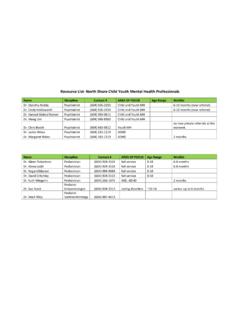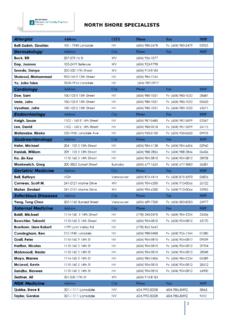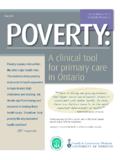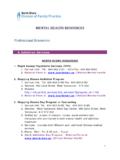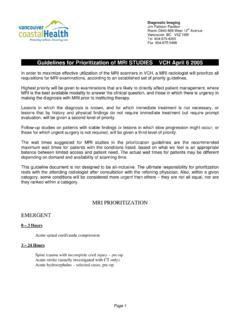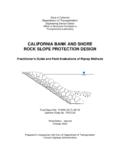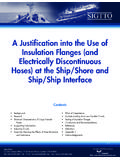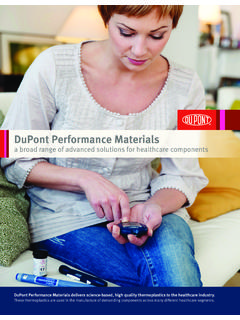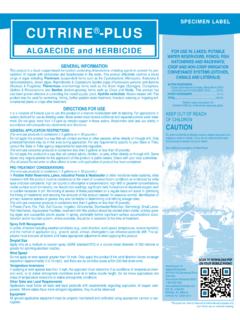Transcription of Abuse, Neglect or Self-Neglect of Vulnerable Adults ...
1 Abuse, Neglect or self - Neglect of Vulnerable Adults protocol for the North Shore 1. INTRODUCTION. This protocol was developed by stakeholders in the North Shore as a companion document to the VCH Abuse, Neglect or self - Neglect of Vulnerable Adults Regional Policy. 2. PURPOSE OF THIS protocol . The purpose of the Adult Abuse and Neglect protocol is to establish the North Shore's requirements for providing services as a designated agency under VCH's Adult Abuse and Neglect Policy and Part 3 of the Adult Guardianship Act. Part 3 of the Adult Guardianship Act deals with options for providing Support and Assistance to abused and neglected Adults . It contains some legal tools for designated agencies to use to address particular problems in supporting abused and neglected Adults who are unable to get assistance on their own. Although the Adult Guardianship Act provides legal remedies, it is important for North Shore employees to remember that the Patient's Property Act, Mental Health Act, Community Care and Assisted Living Act, Health Act, Health Care Consent, Representation Agreement, and the Power of Attorney Act continue to apply.
2 Designated Agencies A Designated Agency is a public body or organization designated by the Public Guardian and Trustee of British Columbia to respond to reports of adult abuse, Neglect and self - Neglect . When a designated agency receives a report it must have an employee look into it. Within a designated agency there are specific programs, which respond to reports of abuse, Neglect and self - Neglect . Provincial Health Authorities (including VCH) are designated and determine which programs will respond to reports. Community Living BC ensures a response for Adults who are eligible for Community Living Services for Adults Program. Designated Programs/Services In situations where the alleged abuser is a staff member, the report will be directed immediately to the operation's manager. That manager will liaise with the Director of Client Relations and Risk Management and/or the Community Care Facilities Licensing (CCFL). Licensing Officer as appropriate. All VCH staff and employees have a responsibility to continue to provide services for clients within their program, service delivery area, despite the identification of abuse, Neglect and self - Neglect concerns.
3 Within the North Shore certain programs/staff have specialized expertise to respond and act in situations of abuse and Neglect and they are referred to as Designated Responders (DR). The Designated Responder Coordinator (DRC) is the staff within the identified program areas responsible for ensuring the report has been received and is being followed by a DR. Abuse, Neglect and self - Neglect of Vulnerable Adults North Shore Protocols Abuse, Neglect or self - Neglect of Vulnerable Adults protocol for the North Shore Adults Who Are Patients In North Shore Coastal (Emergency/In-patient/Out-patient). Lions Gate Hospital/Evergreen House: Telephone Fax Social Work Clinical Practice Leader Adults Living in the Community - Seniors, Adults with Disabilities Community Health Services Intake Home & Community Care Manager Adults with Mental Health Concerns Adults Living in the Community with Mental Illness: Community Psychiatric Services Intake Nurse Adults admitted to In-Patient Psychiatry: Psychiatric Social Worker (ext 5804).
4 Older Adults (70+ with age related Mental Illness): Older Adult Mental Health Team (ext 4124). If the matter cannot be dealt with at the community level they should go to the ER or contact the North Shore Adult Abuse and Neglect Coordinator at the (ext 4124). Older Adult Mental Health Team Adults in a Complex Care Facility or Group Home Call Social Worker or Residential Care Coordinator Community Care Facilities Licensing (*all abuse, Neglect and self - Neglect concerns of residents of any facility are reportable incidents). Social Worker or Manager, Kiwanis Care Centre Social Worker or Manager, Evergreen House Social Worker or Manager, Cedarview Lodge Adults Living in Assisted Living Manager of Assisted Living If you are unsure who to call or if the DR is not available call Re:Act or Emergencies NS Abuse and Neglect Coordinator Adults with Developmental Disabilities Community Living BC North Shore / Sunshine Coast / Sea to Sky Office Abuse, Neglect & self - Neglect of Vulnerable Adults North Shore Protocols 2.
5 Updated July 28, 2009, September 27, 2010, January 28, 2011. Abuse, Neglect or self - Neglect of Vulnerable Adults protocol for the North Shore For the most up to date list of Designated Responder Coordinators for the North Shore please visit Community Response Network 1 is a network of individuals, groups and agencies, who work together at the community level to promote a co-ordinated response to abuse, Neglect and self - Neglect . They may include employees of a designated agency, community agencies, and Adults who are interested in the community response. The Coordinator of the NS Re:Act Coordinating Team will participate and liaise in the CRN. The CRN (North Shore Adults at Risk Network) Coordinator can be reached through the host agency, North Shore Disability Resource Centre It is important to note that many community agencies not designated under the Adult Guardianship Act will continue to receive reports of abuse and Neglect and to offer support and assistance. These include: Community-based services and service providers, such as: home support women's centers family services transition houses spousal assault programs banks and other financial institutions Support groups, such as: advocacy groups peer support groups churches self -help groups volunteer groups service clubs, etc.
6 Provincial government ministries and regional agencies or programs, such as: Police/RCMP Ministry of Human Resources Victims Services Alcohol and Drug Programs Public Guardian & Trustee These agencies and groups may make a report to a designated agency. They would do so when it was anticipated that some of the legal remedies available within the Adult Guardianship Act might be needed to assist or protect the adult involved. Levels of Risk See Appendix 1 Risk Assessment Tool Little or no Risk implies the situation is safe and the adult can likely remain in the current circumstances. Little or no intervention or support is required to protect the adult at risk. Moderate Risk implies the adult is likely to suffer some degree of harm if they remain in the current situation for the short term until the investigation and planning is completed. 1. On the North Shore, known as North Shore Adults at Risk Network Abuse, Neglect & self - Neglect of Vulnerable Adults North Shore Protocols 3.
7 Updated July 28, 2009, September 27, 2010, January 28, 2011. Abuse, Neglect or self - Neglect of Vulnerable Adults protocol for the North Shore High Risk implies the adult is likely to be seriously injured, suffer permanent disability or die if the adult remains in the situation without intervention. 3. PROCESS FOR PROVIDING SUPPORT AND ASSISTANCE TO. ABUSED AND NEGLECTED Adults . See Appendix 2- Flow Chart Intake/Referral Process Confidentiality Anyone can make a report of an adult who is, or may be abused or neglected, and the employee of the designated agency cannot disclose the name of the individual who makes the report. Employees who receive reports can reassure callers of their anonymity, subject to limits within the law, but if possible, should obtain consent from the individual making the report, to release their name. This consent should be documented. Unless the report is proven to be malicious, the individual reporting abuse is protected from damages, including disciplinary actions from an employer, by provisions within the Adult Guardianship Act.
8 Responsibilities and Options In situations where the alleged abuser is a staff member, the report will be directed immediately to the operation's manager. That manager will liaise with the Director of Client Relations & Risk Management/Human Resources as appropriate and/or CCFL as appropriate. In all other situations, when an employee receives or becomes aware of information that an adult is abused, neglected or self -neglected (as per definitions in the Regional Abuse, Neglect and self Neglect of Vulnerable Adults Policy, Section 9 ) the employee who receives the report must: Complete the Re:Act SLS Report Form and ensure the correct Designated Responder Coordinator has been informed and accepted the report. When the adult is known and receiving services from VCH, advise the involved staff of the report. Document the appropriate information on the client's record or Intake Form (as needed): Name of client, address of client, date of birth, family physician, referral source, PHN, nature of abuse, reason that they are unable to seek support and assistance, medical history, known history of violence, suspected criminal activity, who else lives there, language/communication barriers, what else has been done so far to address the problem, drug & alcohol involvement, and If the situation is urgent or emergent, follow procedures in Section Report facts to the police if there is reason to believe that a criminal offence has occurred, as per Appendix 3: North Shore protocol for Liaising with Police Abuse, Neglect & self - Neglect of Vulnerable Adults North Shore Protocols 4.
9 Updated July 28, 2009, September 27, 2010, January 28, 2011. Abuse, Neglect or self - Neglect of Vulnerable Adults protocol for the North Shore Notify the manager/supervisor/practice leader that you have received the report and actions taken. Wherever possible: Inform the individual making the report, who the designated agency, or agency program will be, and the name of the employee who will be following up on the report. Initial Inquiry Responsibilities and Options When the appropriate program employee (Designated Responder) receives the initial report of abuse, Neglect or self - Neglect , they must: Investigate the report Determine if the adult needs and is willing to accept support and is unable to seek support on their own Assess the urgency of the situation and the level of risk to the adult and to the employee Determine if the adult has a Representative or Guardian Involve the adult and family as much as possible and where appropriate. Report the facts to the police 2 if they have reason to believe that a criminal offence has been committed against an adult who is abused or neglected and who is not able to seek support on their own Initiate further investigation if it appears that abuse, Neglect , or self - Neglect has occurred Document actions taken on the client file, and ensure the Designated Responder Coordinator has the required information to document on the Re:Act SLS Follow-Up Form.
10 Following the above, the employee may: Take no further action if the adult does not require support and assistance and/or Make a referral on behalf of the adult to appropriate available health care, housing, social, legal, or other services, and/or Consider other options available to help resolve the concerns other than AGA and/or Make a referral on behalf of the adult to: 3. Public Guardian and Trustee of British Columbia #700 808 West Hastings Street Vancouver, BC V6C 3L3. Phone #: 604-660-4444. Fax #: 604-660-0374. Website: 2. Follow the North Shore protocol for Liaising with Police, Appendix 3. 3. See Financial Inquiries by a Designated Agency and Investigations by the Public Guardian and Trustee, Appendix 4. Abuse, Neglect & self - Neglect of Vulnerable Adults North Shore Protocols 5. Updated July 28, 2009, September 27, 2010, January 28, 2011. Abuse, Neglect or self - Neglect of Vulnerable Adults protocol for the North Shore Using Emergency and Urgent Interventions An emergency can be identified at the initial reporting stage or at any point in the process of offering or providing support and assistance.
